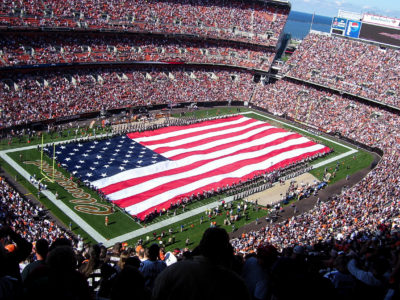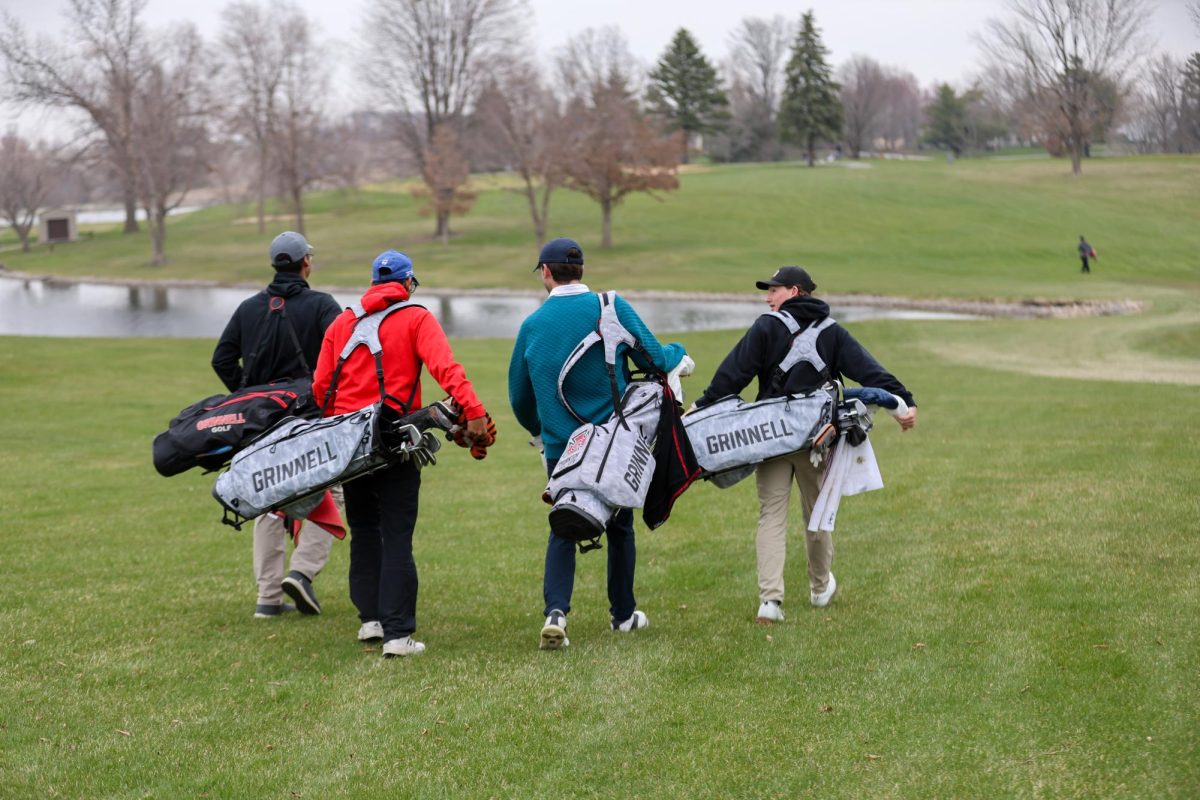
The National Football League (NFL) now operates as a highly visible forum for discussion about social change. This started last fall, when currently-unemployed quarterback Colin Kaepernick refused to stand during the national anthem before games. Kaepernick, who was joined by a handful of other players from various teams throughout the league, stated that his aim was to begin a dialogue surrounding the treatment of minorities in American society.
The reaction to Kaepernick’s protest was polarizing, with some praising him for his courage and sense of social responsibility and others labeling him “un-American” and “anti-military.”
On Saturday night, President Donald Trump decided to join the conversation about Kaepernick and athletes like him who refuse to stand for the playing of the national anthem. In a series of tweets, Trump wrote that “if a player wants the privilege of making millions of dollars in the NFL,” they “should stand for the national anthem. If not, YOU’RE FIRED.”
Unsurprisingly, Trump’s comments had an opposite reaction from what he intended, with more players choosing to kneel or sit on Sunday than ever before. In fact, entire teams like the Seahawks, Titans and Steelers refused to even come out of their locker rooms for the playing of the national anthem.
Though repudiated in the sports world, Trump’s comments are anything but a minority viewpoint, as they reflect the opinion of a sizable subset of the US population who see the American flag and national anthem as unassailable.
A football field is often perceived as a literal or metaphorical battlefield, and this inherent connection to the military means that a protest of this nature in football is much more likely to provoke outrage than were it to be carried out in another of the major professional sports leagues.
Furthermore, the NFL makes conscious attempts to quash the individualism of its players, either by penalizing them for celebrations, fining them for wearing unauthorized apparel, or berating them for speaking out of turn with the media.
This intentional censorship on behalf of the league and its corporate partners creates a delicate facade of collective identity that, when shattered by a player speaking up (or kneeling down, rather) in the name of social injustice, leads to feelings of anger and betrayal from the larger fan community.
Trump’s recent comments are problematic on multiple levels, partly because they prey on the lack of a personal connection between football players and fans, but also because of what they say about where his priorities lie.
US tensions with North Korea are at an all-time high, and major US cities like Houston are still reeling from a series of devastating natural disasters. One would hope that the American president would spend more energy and effort focused on these issues, as opposed to involving themselves so intently with the American sports landscape.
The NFL, for its part, has to be loving the attention that Trump’s comments have gotten. For the past decade, the league has suffered an identity crisis, with issues of CTE and domestic violence dominating the headlines. For more and more Americans, watching professional football has become not simply a question of entertainment, but a test of morality. By focusing on Trump’s incendiary tweets, the conversation has shifted, if only briefly, away from many of the problematic aspects of football and football culture.
Perhaps lost in all the commotion, though, is the hypocrisy of Trump’s comments.
A cornerstone of his election campaign was his pledge to “Make America Great Again,” in large part by giving a voice to those who felt underrepresented and appreciated in a rapidly evolving political, social and technological space. Setting aside the irony of a millionaire claiming to work for the poor, Trump’s rhetoric actually seemingly speaks to the very people who he is so fervently condemning: NFL players.
In the major American male sports landscape, NFL players are pretty much bottom of the barrel. They have no protections, no guaranteed contracts, no clear pathway for success and fulfillment after football. They operate in large part at the whim of a small group of billionaires and big companies. In other words, NFL players are the forgotten casualties of the crusade to sell tickets, jerseys and TV rights deals.
As such, not only do Trump’s comments seem to reinforce notions that he is politically out of touch and serve as an impediment to positive social change, they also emphasize the ever-vacillating nature of his political agenda.
In a nation that preaches unity but subsists on division, sports bring people together more than anything else. While our current president is seeing the bonds strengthen between athletes occur before his own eyes, it is most important that fans and non-athletes pay closest attention to the conversation that Kaepernick started and Trump attempted to finish.
Only then can meaningful bipartisan dialogue occur that transcends sports and leads to richer definitions of equality.
Alas, if only a society predicated on peace, kindness and empathy


















































